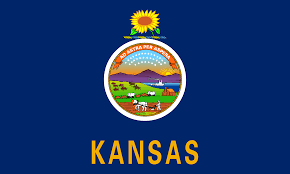
Hello from Topeka! And just like that, it is time to celebrate Kansas Day! The first two weeks of the session saw several bills and committees getting underway with hearings and very soon we will be voting on many proposals.
In the Republican response to the governor’s State of the State, Speaker Ron Ryckman (R-Olathe) stated that Republicans had a different vision with a better plan for Kansas. That plan is Make Kansas Work. This plan features five bills that offer real Kansas solutions for the challenges our state is facing: • Innovative Funding for Rural Health Care • Tax Relief for Seniors • Savings program for first time homebuyers • Workforce development: Tuition assistance for the most needed skilled workers •Workplace development: Businesses partnering with the disabled community
The Rural Hospital Innovation Act creates a $30,000,000 fund using public dollars matched by private dollars to be granted to rural counties to help rural hospitals respond to changing markets, identify needed improvements and make the changes necessary to stay open and protect access to health care in rural areas of the state.
Tax relief for seniors: our tax relief plan for Kansas seniors would raise the exemption for senior citizens receiving Social Security from $75,000 in annual income to $100,000 in annual income so that Kansas seniors can continue to work and earn additional income if they wish to do so without having to pay higher taxes. Kansas seniors should not be penalized for continuing to work, farm, or run their own business just because they are drawing the Social Security benefits they’ve earned.
A first-time home buyer savings account modeled on the state’s successful 529 education savings plan. The accounts allow for tax deductible deposits to help Kansans save for their first home, or for parents and grandparents to save on behalf a child who will put down roots in Kansas or even for communities to save to attract needed professionals such as doctors, dentists or teachers to the community.
The Kansas Promise Act is modeled on the successful Tennessee Promise Act but modified to enhance workforce development. Under the bill scholarships are offered to Kansas graduates who agree to complete a certificate or two-year program in one of the state’s high need areas for labor. The students must work part time or perform community service during their education and commit to remaining in Kansas and working for two years post-graduation.
The Kansas Targeted Employment Act which would provide for integrated workshops where those with disabilities could work alongside those who receive public assistance but want to work. Private businesses that send work to an integrated employment center would receive a tax credit so long as the workers are paid at least minimum wage and offered benefits upon full time employment.
If you want more information go to MakeKansasWork.com.
Judicial Funding Lawsuit Thrown Out - Just before Christmas, six trial judges and one judicial branch employee filed a lawsuit against the Legislature over what they consider lack of funding.
A month after the lawsuit’s filing date, the Kansas Supreme Court dismissed the lawsuit and recommended inter-branch cooperation rather than litigation. Chief Justice Marla Luckert noted in a statement that the judicial branch must not infringe on the Legislature’s budget making authority. Further, Speaker Ryckman made the following statement in response to the lawsuit’s dismissal:
“I am pleased that our peers in the judicial branch agree that we as legislators are the sole appropriators of taxpayer dollars. I appreciate the Court’s recognition of separation of powers and their renewed commitment to open communication. It’s a good day for Kansas.” -Speaker Ron Ryckman
Bottom Line: The people’s elected legislators are the sole appropriators of taxpayer dollars. Taking the Legislature out of the equation and leaving judges to determine how much judges should make would remove the fundamental checks and balances of our government.
I serve on the House Appropriations Committee and last week we received updates on two capital improvements projects pushed by the Kelly Administration. The first concerns the Docking State Office Building. Secretary of Administration DeAngela Burns-Wallace discussed the feasibility study, which proposes two options: • Option A: Complete renovation of Docking ($114 million) or •Option B: Reducing the size of the building to three floors, and rebuilding three floors ($100 million)
These options are not included in the governor’s budget.
The second project update is building a new laboratory for the Kansas Department for Health and Environment (KDHE). The KDHE laboratory is currently located at Forbes Field, in Topeka—the agency is proposing the construction of a new facility. Creating a new laboratory for KDHE at Docking under Option A increases the total price tag to $154 million. For creating a new laboratory under Option B, the total estimate is $139 million. Additionally, KDHE provided cost models for creating a new laboratory at an alternative downtown site in Topeka, at the Kansas Neurological Institute (KNI), and at the existing Forbes site. The total project cost at the downtown site is $56.3 million, KNI is $57.8 million, and $56.1 million at Forbes. These proposals are also not included in the governor’s budget. While something needs to be done with Docking, full disclosure and discussion needs to take place in moving forward.
When you come to Topeka during the session, my office is still located in Room: 149-S. My phone number is (785) 296- 7463 and email is: ken.rahjes@house.ks.gov and you can always try my cell number at (785) 302-8416. When you call or write you might hear from Jan Kohlers, who is my assistant during the session.
I look forward to seeing you around the 110th District. It is my honor to by your representative.